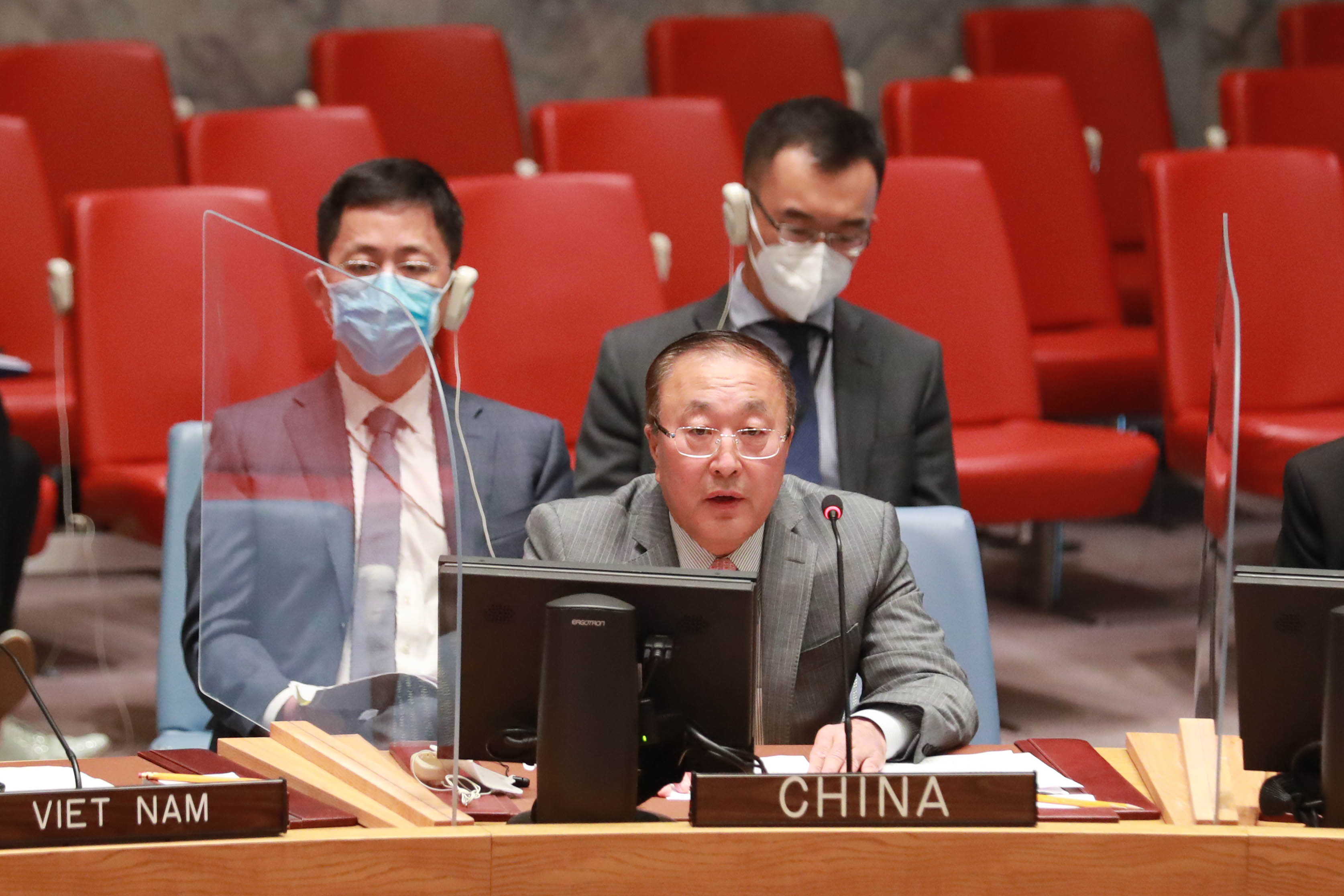| Remarks by Ambassador Zhang Jun at Security Council Briefing on the Comprehensive Nuclear-Test-Ban Treaty |
| 2021-09-27 12:30 |
|
Mr. President, I welcome your chairing of today's meeting. I also thank Under-Secretary-General Nakamitsu, Executive Secretary Floyd and Ms. Wanyaga for their briefings. The Comprehensive Nuclear-Test-Ban Treaty is an important milestone in humanity's quest for a world free of nuclear weapons. In the 25 years since opening for signature, the CTBT has made significant contributions to curtailing the nuclear arms race, mitigating the risk of a nuclear war, and maintaining international peace and security. This treaty has become a major pillar of the international nuclear disarmament and non-proliferation architecture. The volatile and challenging dynamics of international strategic security and stability that we are seeing today highlight the importance of the CTBT. In his Our Common Agenda report, Secretary-General Guterres calls for a new agenda for peace and new actions to, inter alia, reduce strategic risks. Promoting the early entry into force of the CTBT ought to be one of the many efforts to this end. In this regard China would like to propose the following. First, to firmly uphold multilateralism, and create an enabling security environment for the entry into force of the treaty. All states should practice true multilateralism, stay committed to win-win cooperation and equity and justice, reject the Cold War mentality and zero-sum game, work towards common, universal and durable security, and eliminate the root causes of the existence, proliferation and testing of nuclear weapons. Second, to support the object and purpose of the treaty and build on the strong political momentum for its entry into force. The international community should keep up its advocacy for the complete prohibition and total destruction of nuclear weapons, and enable the vision of a nuclear test ban to gain greater traction among the peoples. Nuclear-weapon states should honor their commitment to a moratorium on nuclear testing, genuinely cut the weight of nuclear weapons in their national security policies and make a no first use pledge. Third, to preserve the international arms control regime, and provide more robust institutional safeguards for the entry into force of the treaty. All states should work together to uphold the international order based on international law, strengthen the multilateral disarmament machinery with the UN at its core, comply with and fulfill their international obligations and commitments, renounce double standards and discriminatory practices, and maintain the integrity, authority and effectiveness of the international arms control treaty system. Fourth, to advance the preparations for the implementation of the treaty and reinforce a robust foundation of capacity for its entry into force. The international community should further push ahead with the development of the International Data Center, the International Monitoring System, and the on-site inspection mechanism in a comprehensive and balanced manner, and assist developing countries with capacity building, with a view to full technical readiness for the operation of the verification regime once the treaty enters into force. Mr. President, Both the CTBT, and the Treaty on the Non-proliferation of Nuclear Weapons are important pillars of the international nuclear disarmament and non-proliferation regime. While promoting the early entry into force of the CTBT, the international community should also conscientiously safeguard the authority, universality and effectiveness of the NPT. All states should demonstrate a responsible attitude. China objects a utilitarian approach to the NPT, or the application of double standards thereto. It is wrong of a scant few nuclear-weapon states to make high sounding pronouncements about their commitment to the international nuclear non-proliferation regime, while assisting non-nuclear-weapon states in building nuclear-powered submarines. Not only will it intensify the arms race to the detriment of the international non-proliferation regime, as well as international and regional security and stability, it also runs counter to the spirit of the NPT. We hope that the countries concerned will heed the call of the international community, faithfully fulfill the international non-proliferation obligations, and put a greater effort towards regional peace and stability. Mr. President, China was among the first signatories of the CTBT, and has conducted the least nuclear tests among all nuclear weapon states. Since announcing the nuclear test moratorium in 1996, the Chinese Government has scrupulously upheld the moratorium, and has never wavered in its support for the treaty at the political level. In its own way, China has made its due contributions to the entry into force of the treaty, to the preparations for its implementation, and to international cooperation on the treaty. I would like to reiterate that China will not become an obstacle to the entry into force of the CTBT. Come what may in the shifting of international political climate, China will remain staunchly committed to safeguarding multilateralism, maintaining international peace and security, and preserving the international nuclear disarmament and non-proliferation regime. China will continue to work with all other parties to consolidate the international consensus on a nuclear test ban, contribute to bringing the treaty into force, and make unremitting efforts towards our noble goal, namely, the complete prohibition and total destruction of nuclear weapons at an early date. I thank you. Mr. President. |
| |||||||||||||
| |||||||||||||
